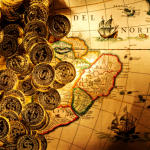 With national unemployment still around 10%, it’s no surprise that some studies show a lack of consumer confidence in an economic recovery. Recent figures from the cruise industry, however, say otherwise. Rising demand for cruises, which often foreshadows wider consumer demand, suggests overall confidence may soon be on the upswing.
With national unemployment still around 10%, it’s no surprise that some studies show a lack of consumer confidence in an economic recovery. Recent figures from the cruise industry, however, say otherwise. Rising demand for cruises, which often foreshadows wider consumer demand, suggests overall confidence may soon be on the upswing.
This past summer, cruise lines launched new vessels, most of which were ordered before the recession hit a few years ago. These new ships, for the most part, are essentially copies of existing ships in each line’s fleet. Without great distinctions in design, it’s new innovations in technology and new trends in dining and entertainment that are meant to lure travelers. But are these amenities really pulling guests onboard or is cruise price the bottom line? And how often are these new amenities tied to extra costs?
With so many travel sites enabling consumers to compare prices instantly, there’s little stopping travelers from simply clicking and choosing the best fare. In response, in order to present the best price, cruise lines are turning amenities that were once included in the base price into “extras.” For instance, Carnival Cruise Line recently announced it would add $18 to the cost of steak or lobster entrees in the dining rooms on three of its ships. While cruise lines already charge guests extra to dine in their specialty restaurants, Carnival’s plan is relatively new, and it may reflect a coming trend in pricing. This “a la carte” pricing method will no doubt come as a surprise to loyalists of the all-inclusive cruise concept.
One of cruising’s largest appeals, after all, is its inclusive pricing; vacationers have few unexpected, added expenditures after purchase. Given the majority of comments posted to this Smarter Travel piece, cruse lines should be wary of adding too many extra costs to a sailing. Even if these extra costs are kept relatively modest, cruise consulting companies agree that guests who feel nickle-and-dimed may leave the ship believing the value of cruising isn’t all they expected. While increasing demand for cruises might be indicative of a surging economy, it is not necessarily a good indicator of customer satisfaction.













